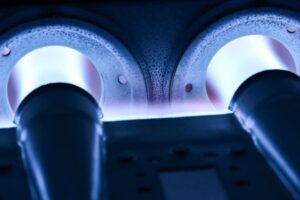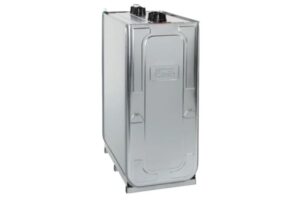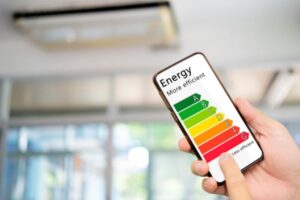How Do I Know If My Air Conditioner Has A Refrigerant Leak?

Contents
- 1 How Do I Know If I’m Dealing With An AC Refrigerant Leak?
- 2 Call Columbus Energies For Your Air Conditioning Requirements
An air conditioner refrigerant leak is a relatively common issue that’s not always easy to identify. This problem, like many HVAC issues, is characterized by inefficiency and an inability to deliver the comfort you need in the summer. It may also cause health issues if the AC refrigerant leak isn’t resolved promptly. Therefore, homeowners should have some knowledge about this cooling issue. This way, they can address it quickly should it happen to their air conditioning system.
How Do I Know If I’m Dealing With An AC Refrigerant Leak?
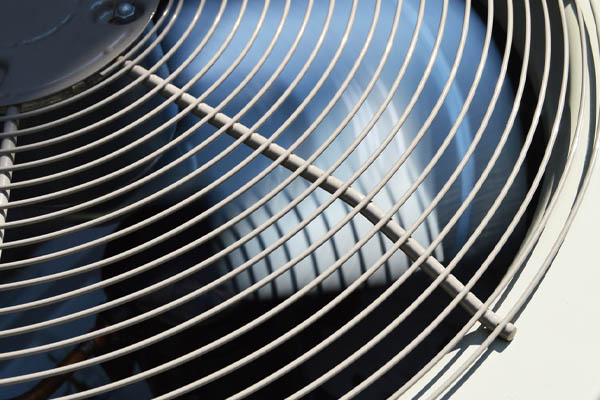
This article discusses the role that refrigerant performs in an air conditioner. It also includes some of the reasons coolant can leak and the possible solutions to remedy the issue.
What Does An Air Conditioner Refrigerant Do?
Air conditioner refrigerant is a compound that is in either a gas or fluid state. Air conditioner systems use refrigerants like R-22 or R410a that the compressor pumps across specific system components. The compressor then quickly compresses the refrigerant as it pulls it in, forcing the molecules into a smaller space. The molecules collide, resulting in heat production. The refrigerant then passes through the condenser, releasing the heat to the outside air. Fans also help in heat elimination. The refrigerant condenses into liquid form as it cools down. The refrigerant cools further as it travels through the evaporator and is released into a room.
The refrigerant’s action is crucial for cooling the indoor air through the air conditioning system. If there is low or leaking refrigerant, the system’s cooling capabilities significantly decrease.
Related Article: How Does An Air Conditioner Tune-Up Save Me Money?
What Causes An Air Conditioner To Leak Refrigerant?
Below are several reasons that can cause an air conditioner coolant leak:
AC Unit Corrosion
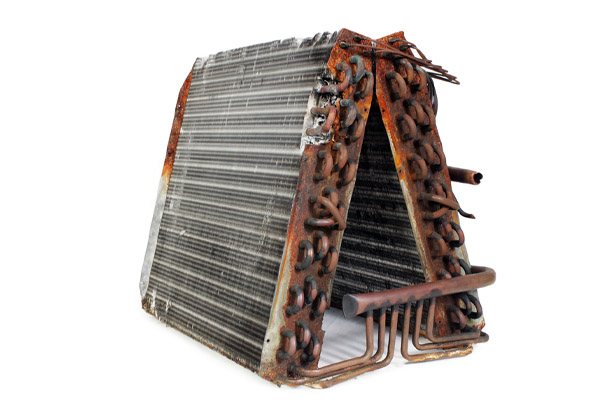
Metal components in your air conditioner can corrode. This includes the copper tube walls inside the indoor coil. As a result, holes and cracks may develop in the weakened metal and cause a refrigerant leak.
Weakened Air Conditioner Joints & Connections
The joints and other connections in the air conditioner can erode or thin out as time passes and these parts age.
Related Article: What Does An Air Conditioner’s SEER Rating Mean?
Improper Air Conditioner Installation

If an air conditioner isn’t installed correctly, certain components may not be fitted properly and cause leaks.
Cooling System Factory Defects
A defective cooling system can be caused by improper assembly or mishandling prior to its installation in your home. These factory defects can cause a refrigerant leak.
Air Conditioner Wear & Tear
Age and regular usage can lead to a coolant leak. Rubber seals can protect certain air conditioner components, but these can eventually wear out and let the refrigerant leak through.
Signs To Look For When Your Air Conditioner Has A Refrigerant Leak
Here are several signs you may be dealing with a refrigerant leak in your air conditioner:
- Higher Electric Costs: A refrigerant leak means the air conditioner cannot cool your home efficiently. It will also result in the system working harder so the ambient air reaches the set temperature. This will cause your electric bill to increase.
- Air Conditioner Takes A Long Time To Cool Your Home: A coolant leak causes the air conditioner to lose its cooling power. In turn, it will take longer for your home to feel comfortable after turning on your air conditioner.
- High Humidity Levels: High humidity is another symptom of an improperly working air conditioning system. Low refrigerant levels mean that the air conditioner will take a longer time (if at all) to dehumidify your home.
- Frozen Evaporator Coil: If an insufficient amount of refrigerant is circulating through the air conditioner evaporator coils, the coil cannot absorb heat. This results in condensation forming in the coils that can freeze. You can typically see ice on the coils when this occurs.
- Air Conditioner Leak: Frozen condensation on the evaporator coil may have melted, causing a leak. The liquid will drip and form a puddle on the floor or ground.
- Hissing Sounds: Holes or cracks in the evaporator coils can result in a hissing sound coming from your air conditioner. Larger leaks can produce a gurgling sound.
- Low Airflow: This issue happens when there’s insufficient refrigerant in the air conditioner because the unit cannot produce the right amount of cool air.
Dangers Of Air Conditioner Refrigerant Leaks
Refrigerant leaking through the vents can be problematic. If exposed to a refrigerant leak, you may experience poor concentration, dizziness, coordination loss, and shortness of breath. You may also develop skin rashes. You may also develop chemical burns or frostbite if the refrigerant directly touches your skin. Inhaling high amounts of this chemical can also cause seizures and fainting. It can even be fatal in some situations.
Should I Repair Or Replace My Air Conditioner?
It may be tempting to try and repair your air conditioner or do a DIY air conditioner replacement. However, remember that several problems can cause a refrigerant leak, and only an HVAC professional should resolve them. For instance, you may have a newer air conditioner model, and conducting DIY repairs may void your warranty. It is best to have an HVAC technician help you.
It is important to note that R-22, the most common refrigerant in older air conditioners, has been phased out since 2020. This means it isn’t produced anymore. It may be available in very limited quantities and at costly prices. If you have an older R-22 air conditioner and it isn’t operating efficiently, getting a replacement instead of repairs is more practical.
Older units have a lot of problems that will inevitably need to be addressed. Repairing a leaky, aging, and problematic air conditioner and topping off the refrigerant may cost almost as much as half of a new, ENERGY STAR® certified air conditioner. A new air conditioning system with a high SEER rating means better efficiency, improved performance, and a higher level of comfort.
Related Article: Questions To Ask When Choosing A Propane Company
Conclusion
Getting an energy-efficient air conditioner may be the best choice if you’re having trouble with a refrigerant leak from an old, outdated AC unit. Simple problems can be repaired, but some damages and defects need a more solid solution. Consult a reputable HVAC professional regarding the options you have to achieve optimum comfort and safety in your home.
Call Columbus Energies For Your Air Conditioning Requirements

For exceptional heating and cooling services throughout Southeastern Massachusetts and the Rhode Island region, don’t hesitate to call Columbus Energies. Our professionally certified technicians are experts in HVAC replacements, installations, repairs, and tune-ups. Each of our friendly techs has the right tools, experience, and knowledge to service your HVAC system correctly.
Columbus Energies guarantees to have quality and affordable heating and cooling services. Our maintenance services can help you achieve better home comfort and energy efficiency while lowering your cooling bills. We can suggest the best HVAC repair or replacement system per your needs and budget. Your satisfaction is important to us, so all our work is guaranteed. Call Columbus Energies to schedule a service appointment and receive a free, in-home estimate.
Contact us now by calling (508) 674-1492 to speak to one of our home comfort specialists!





